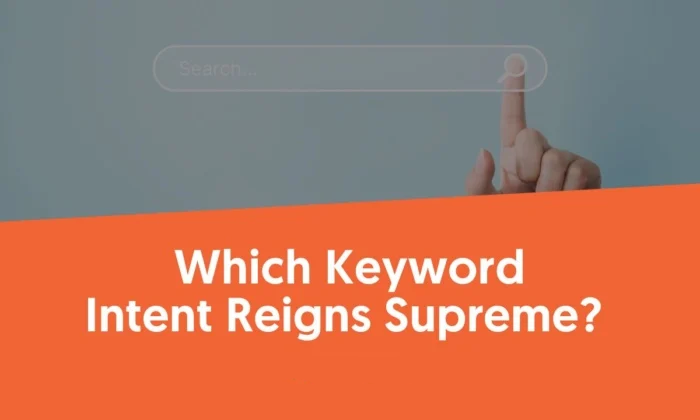Which Keyword Intent Reigns Supreme?

Have you ever stopped to consider the reason—the user’s purpose for searching—behind the keywords you’re targeting?
That’s where keyword intent comes in.
Keyword intent, also referred to as search intent, is the reason behind the user’s query. Each query has a purpose, and knowing the intent behind keyword targets helps you create engaging content that meets users’ expectations.
So how should keyword search intent impact your keyword targeting and content creation?
In this post, I’ll review the four main types of keyword intent and why creating content that meets intent matters. I’ll explain how three major SEO brands utilize different search intent in their keyword universes (all traffic-driving keywords to a website).
What can we learn from them? Can we apply any of their strategies to our own content?
Keep reading to find out.
What Are the Main Types of Keyword Intent?
-
Informational Intent: Keywords with informational intent are used to provide answers, information, or solutions to users' questions. They are valuable for building authority and attracting organic traffic. Examples include "how to bake a cake" or "history of the Eiffel Tower."
-
Navigational Intent: Keywords with navigational intent help users find specific websites, brands, or products. They often include brand names or domain-specific searches like "YouTube" or "Facebook login."
-
Transactional Intent: Transactional keywords indicate that users are ready to make a purchase or take a specific action. These keywords are crucial for e-commerce and online sales. Examples include "buy iPhone 13" or "book a flight to Paris."
-
Commercial Investigation Intent: These keywords indicate that users are in the research phase, comparing products or services before making a purchase. Content optimized for this intent can help influence purchase decisions. Examples include "best DSLR cameras" or "compare iPhone vs. Android."
-
Local Intent: Local intent keywords are essential for brick-and-mortar businesses and service providers. They help users find businesses near their location. Examples include "restaurants near me" or "dentist in [city]."
-
Brand Intent: Brand-related keywords specifically target a particular brand or product. They are valuable for brand recognition and loyalty. Examples include "Nike shoes" or "Apple MacBook Pro."
Your website should target each type of keyword intent, though what that split looks like will depend on your products or services and your overall content strategy.
Although this is subjective, analyzing well-known SEO brands’ keyword universe and how they segment their content to meet various intents could help inform your own strategy.